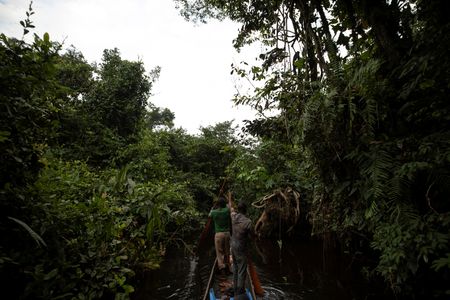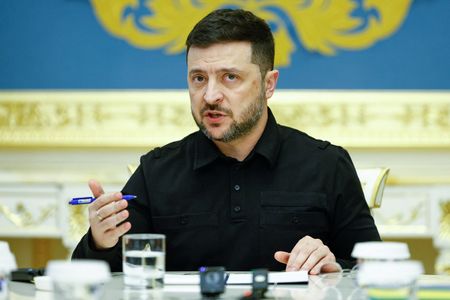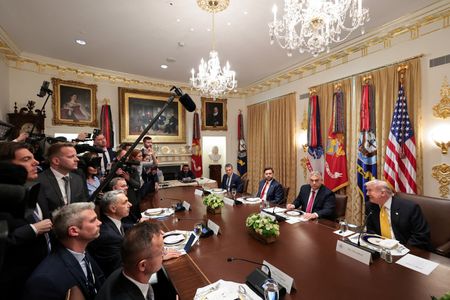By Lisandra Paraguassu and Simon Jessop
BELEM, Brazil (Reuters) -European nations have backed a $2.5 billion plan to save the Congo rainforest, France’s presidency told a United Nations climate summit, launching a conservation scheme that may steal some thunder from the flagship initiative of COP30 host Brazil.
Mobilizing more money to protect and restore the world’s last remaining rainforests is a central goal of the U.N. climate talks, deliberately held in the Brazilian Amazon this year to focus on the need to fight emissions from rampant deforestation.
“The Belem Call for the Forests of the Congo Basin” initiative led by France and Gabon and backed by Germany, Norway, Belgium and Britain was first reported by Reuters on Thursday and later confirmed by France.
The European Commission, World Bank and African Development Bank have also signed on. The effort aims to mobilize more than $2.5 billion over the next five years, along with domestic funds from Central African countries, to help protect the second-largest rainforest in the world.
Backers said they will also help African nations reduce deforestation through technology, training and partnerships, aiming to end deforestation in the Congo Basin by 2030.
The Congo, the Amazon – the world’s biggest rainforest – and the Borneo-Mekong-Southeast Asia basin, the third-largest rainforest, all face threats from expanding farm frontiers, logging, mining, and other industries.
The Congo Basin rainforest spans at least six countries in central Africa with the largest portion in the Democratic Republic of the Congo.
While protecting the Congo has drawn attention because it now absorbs more net greenhouse gases than other forests, the timing of the news threatened to compete with Brazil’s focus on a global forest fund at the center of its COP30 agenda.
Brazilian President Luiz Inacio Lula da Silva has touted the Tropical Forests Forever Facility (TFFF), as the future of climate finance because it replaces grants with a more scalable investment model.
“In theory, both initiatives are very different,” said a diplomat familiar with both proposals, noting that the TFFF would offer annual payments to rainforest nations with no strings attached. Still, the optics of two rival rainforest funds may be unhelpful, the source added.
Norway also pledged $3 billion to the TFFF on Thursday, the biggest contribution so far. France said it could offer up to 500 million euros to the Brazilian-led initiative. Germany on Friday promised a “significant” contribution.
(Reporting by Lisandra Paraguassu in Belem and Simon Jessop in Sao Paulo; Editing by Brad Haynes, Diane Craft and Cynthia Osterman)











